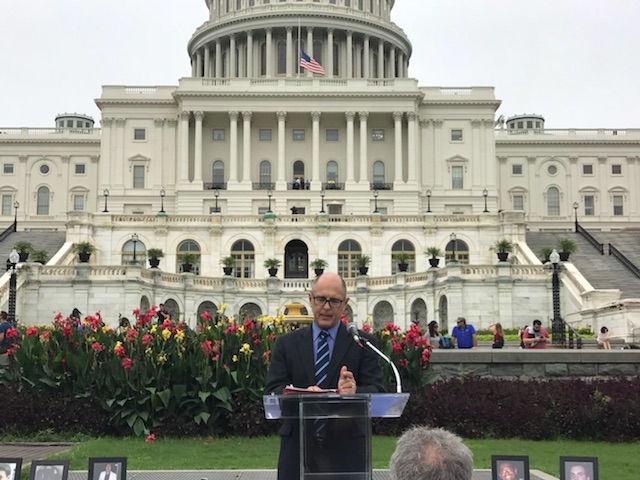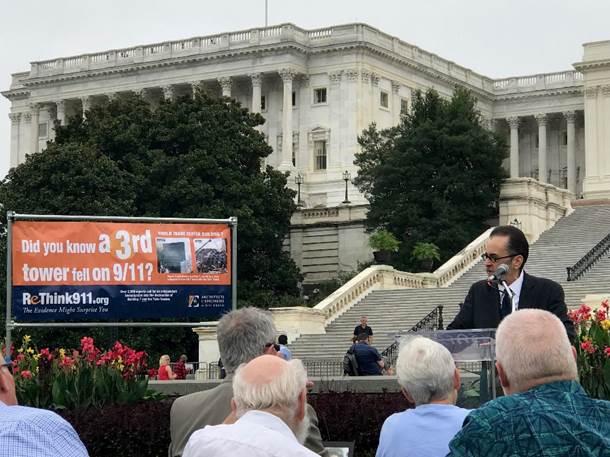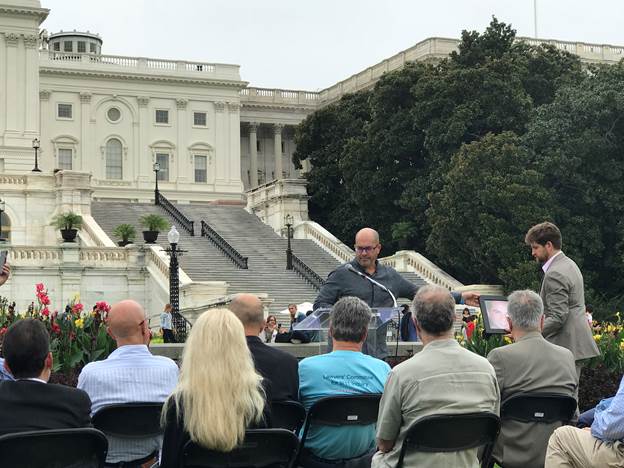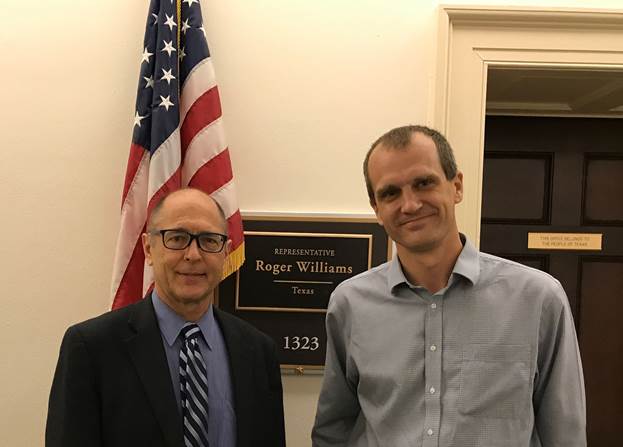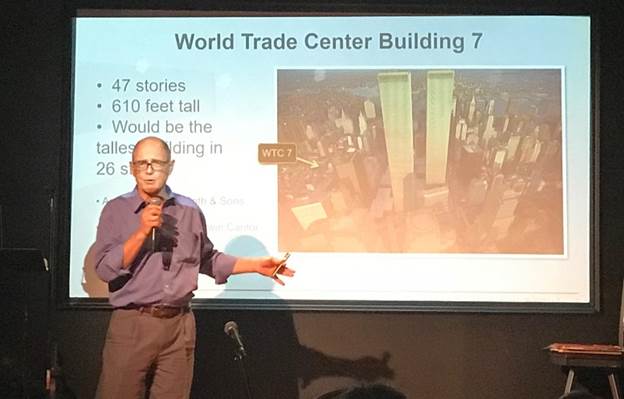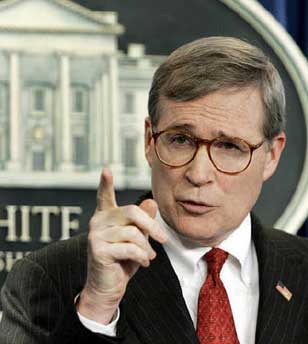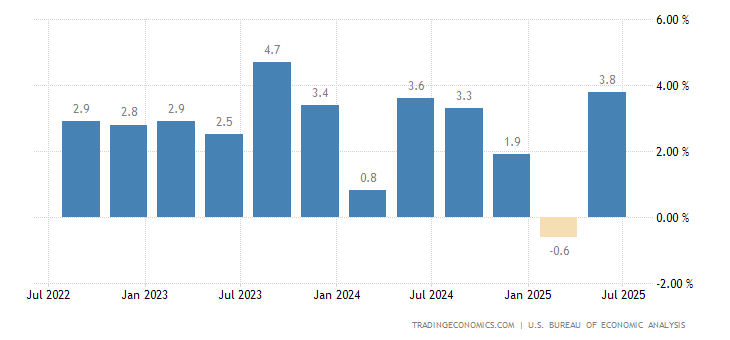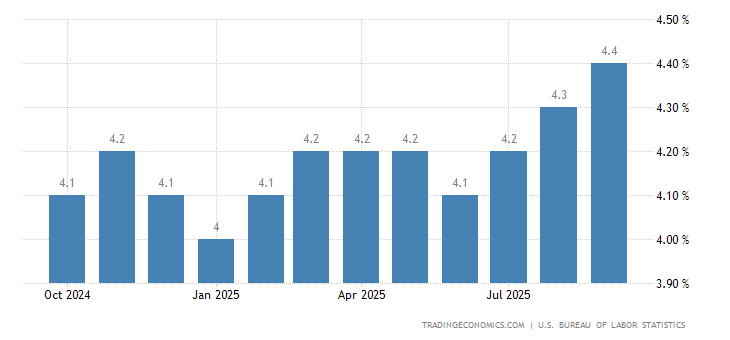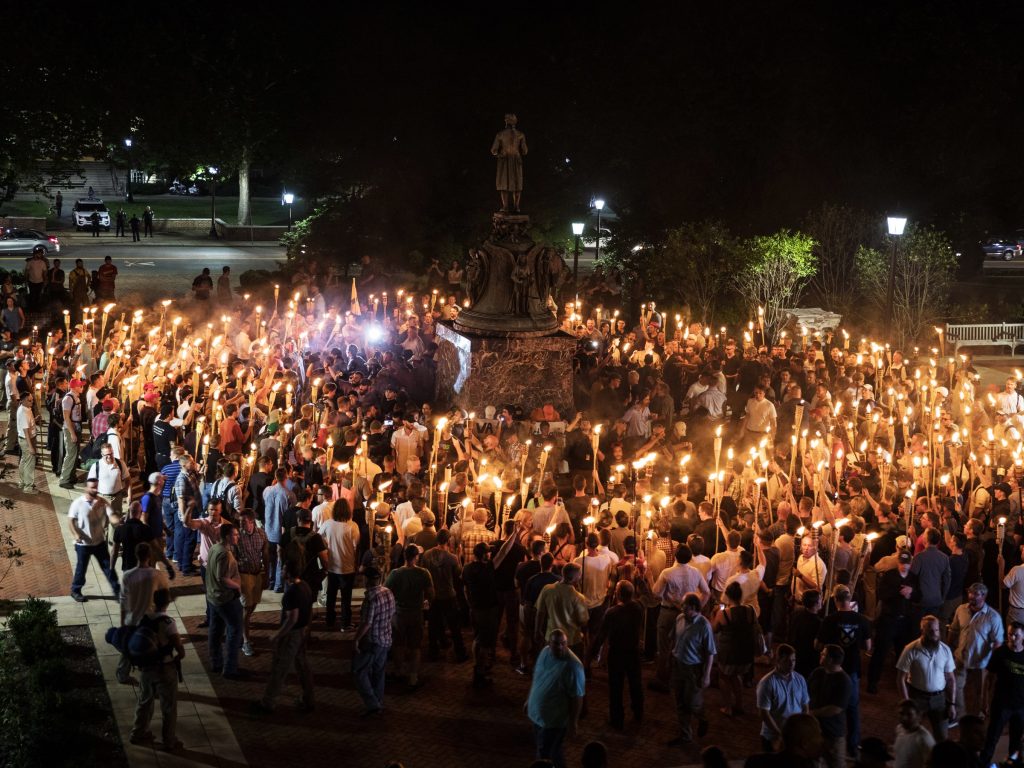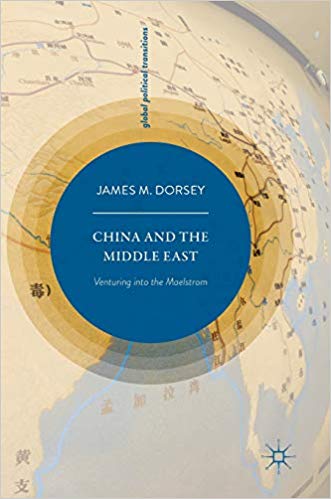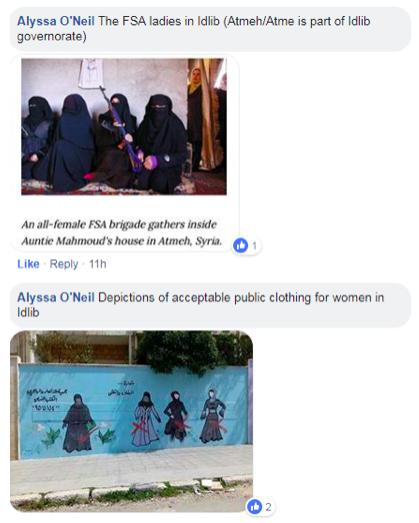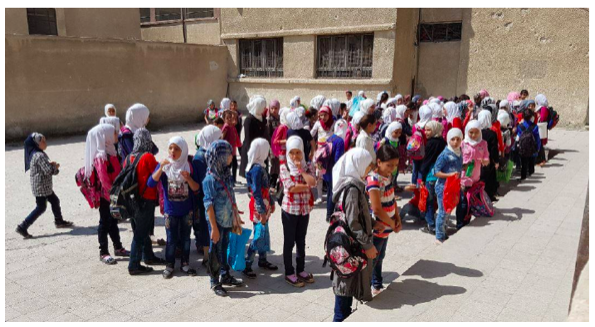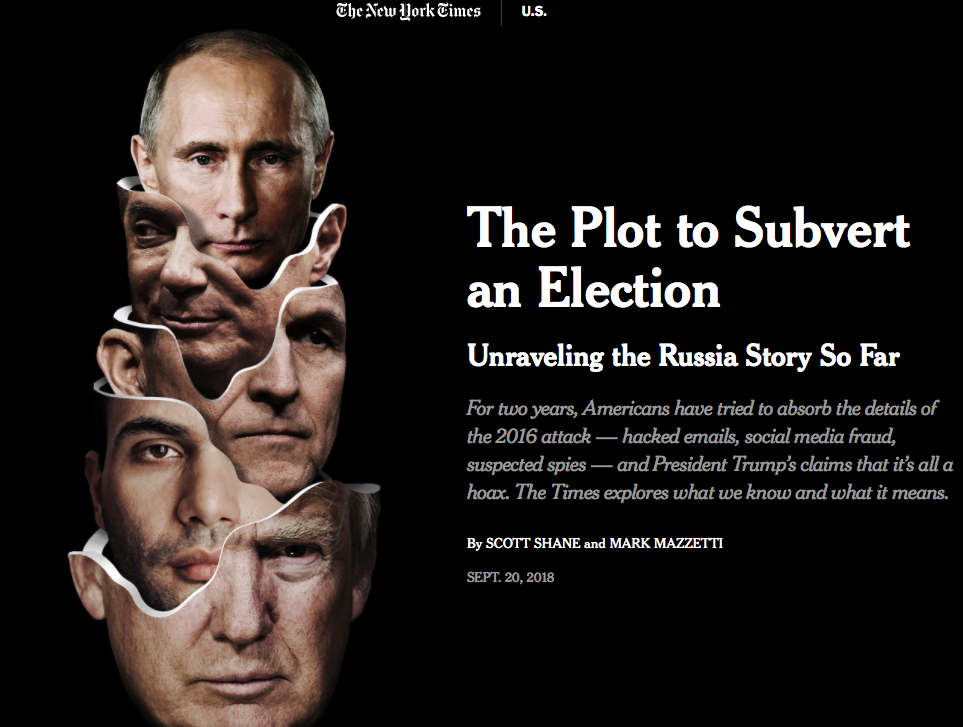Note: The following paper was delivered in part at the Workers World conference on the Chinese Revolution held on August 29, 2009 in Detroit. We are republishing this document in 2018 in recognition of the 69th anniversary of the Chinese Revolution of October 1949.
We should note that in recent years the role of the People’s Republic of China largely characterized by Beijing’s Belt and Road initiative has changed dramatically in relation to what is reviewed and analyzed in this article.
***
Since the Chinese Revolution and the ascendancy of the Communist Party of China (CPC) in October of 1949, the role of this nation in the struggle of colonized, semi-colonized and neo-colonized countries has been tremendous. One of the significant contributions of the revolution of 1949 is that it took place in a nation that had been subjected to the domination of both British and Japanese imperialism during the 19th and 20th centuries.
China under the British was reduced to near-slave status with the vast wealth of tea and other agricultural products along with the control of its waterways falling for many decades under the control of these foreign powers. A decades-long political, military and ideological struggle provides tremendous lessons as well as inspiration to other historically colonized territories throughout the world. Colonialism and imperialism rendered China to an underdeveloped country despite its vast achievements dating back at least two thousand years in history.
With specific reference to the African continent, there had been contact with China dating at least to the first century B.C. Although opinions differ, Chinese historical accounts written by Si Machien indicate that the Emperor Wuti of the Han Dynasty dispatched envoys westward in an effort to form alliances with friendly peoples in order to develop resources in their struggles against the Huns in the north.
A number of envoys landed in countries formerly known in China as Pathia, Babylonia, Seleuid Media and Likan. It is the contention of some historian that Likan was the name given to the city of Alexandria in Egypt, which became a trading center under Greek rule and was later annexed by the Roman Empire. Later a French sinologist named Pelliot also believed that Likan was actually Alexandria. Another Chinese historian Feng Chenjun agreed with Pelliot’s conclusions regarding ancient contact with Egypt. Later Joseph Needham in his book entitled Science and Civilization in China claims that Likan was ancient Egypt.
Former President of the West African nation of Ghana, Dr. Kwame Nkrumah, in a speech before the First Conference of Africanist held in Accra beginning on December 12, 1962, discussed the role of Arab and Chinese explorers and scholars in chronicling African history prior to the advent of the Atlantic slave trade and colonialism. He states in this address that: “The Arabs and the Chinese discovered and chronicled a succession of powerful African kingdoms. One of these kingdoms was that of Ghana, the pomp of whose court was the admiration of that age–and also of ours.” (Speech at the Congress of Africanists, published in Revolutionary Path, 1973, p. 207)
Nkrumah continues by pointing out also that “The Chinese, too, during the T’ang dynasty (AD. 618-907), published their earliest major records of Africa. In the 18th century, scholarship connected Egypt with China; but Chinese acquaintance with Africa was not confined to knowledge of Egypt only. They had detailed knowledge of Somaliland, Madagascar and Zanzibar and made extensive visits to other parts of Africa.” (Revolutionary Path, p. 208)
In recent times during 2003, a Chinese map of Africa dating back to 1389 was uncovered in the South African Parliament. The Da Ming Hun Yi Tu, an amalgamated map of the Great Ming Empire, illustrates the shape of the African continent, including the Nile River in north and east Africa as well as the Drankensberg Mountains located in South Africa. This artifact proves that long before the western Europeans entered this far south on the continent, the Chinese had made contact and conducted geographic surveys of the territories.
Historian Fred Burke writing in 1970 pointed out that the Chinese scholar Tuan Ch’eng-shih noted during the ninth century that a region in Africa known as Po Pa Li had not been dominated by any foreign power. For whatever reason, Burke doubted direct contact between Chinese explorers and the African continent prior to the early 1400s. He believed that Chinese knowledge of Africa was gathered through intermediaries from the Arab, Indian, Malay and Indonesian peoples.
Nonetheless Burke does state that “Mogadishu, the capital of modern-day Somalia, became a major port of call for early Chinese merchants. A number of references are made to this African port in the histories of the Ming dynasty. In 1427 Mogadishu sent an ambassador to China, and three years later it is reported that a large fleet of Chinese junks dropped anchor in the harbor. Early Chinese coins and crockery have been found along the East Africa coast.” (Africa, Fred Burke, 1970)
Leading into the period of slavery and colonialism, China had limited contact with western states. However, between 1839 and 1860 the British imperial forces attacked Chinese ports and massacred untold numbers of people. This was designed to guarantee the proliferation of the opium trade which was a major source of profits for the British colonial occupation.
Within this process the British imperialists stole millions of pounds from the Chinese while taking control of Hong Kong and other territories on the mainland. They eventually took control of Chinese ports by force and made them major centers of British trade.
The Treaty of Nanking was imposed in 1842 which tied the development of China to the colonial interests of Britain. In 1857 the British through force of arms installed an Inspector General of Customs. These developments lead to the massive theft of Chinese wealth utilized for the purchase of opium. As a result the internal industries within China such as handicraft production were ruined. This created the conditions for the collapse of the Manchu government that was under bombardment from the British navy. The Chinese officials who did survive were corrupted through the opium trade that eventually eroded the civilization that had been in existence for centuries. The British ruled the region by force for almost eight decades when in 1925 the Chinese nationalists won some concessions related to the collection of tariffs.
In Africa, the colonialists had penetrated the continent beginning in the early 15th century seeking trade routes and slave labor. The establishment of colonies in the western hemisphere by Portugal, Spain, France, Holland and Britain necessitated the importation of millions of Africans as chattel labor. In 1884-85 the imperialist states met in Berlin to carve up the continent based upon their own economic and political interests. Even though slavery had been outlawed by the conclusion of the 19th century, the specter of colonialism and imperialism continued, creating the conditions for the Spanish-American war during the turn of the 19th and 20th century, the Russian-Japanese war of the same period and moreover, the World War of 1914-1918.
All during this period, anti-colonial struggles would erupt throughout imperialist-dominated territories. Greater industrialization in Russia and China would lead to upheavals. In Russia the first socialist revolution would occur in 1917. In China, the rise of the nationalist movement, trade unions and the communist party would provide opportunities for struggles against both the British imperialists and the Chinese bourgeoisie.
Unfortunately, the failure of the communist party to seize power in 1927 led to the massacres of revolutionaries. It would take an invasion of China by Japan and the displacement of British imperialism during the 1930s as well as another world war between 1939-1945 to further weaken European and Japanese imperialism creating the conditions for the eventual triumph of the Chinese revolution in 1949.
The Cold War and the Invasion of Korea
In the aftermath of World War II the struggle of colonized peoples for self-determination and independence accelerated. In Asia and Africa the war was viewed by many people as having weakened imperial centers of power in Italy, France, Britain, Japan and Germany. During the period leading up to the war in the 1930s there was an upsurge in political consciousness and activities among labor and within the African-American communities across the country.
The formation of the Congress of Industrial Organizations (CIO) that grew out of the major strikes in San Francisco, Minneapolis and throughout the south in 1934, began to challenge the ruling class approach to the problems of mass unemployment and displacement during the Great Depression. The Italian invasion of Ethiopia and the seizure of Spain by the fascists ignited internationalism among the African-American people.
During World War II there were challenges to the racism in the labor market through the March on Washington Movement of 1941 as well as the race riots that erupted in Detroit, Los Angeles and other cities during 1942-43. Hundreds of thousands of African Americans were drafted into the United States military and served in Europe, Africa, Asia and the South Pacific. This was true as well of peoples throughout Africa and Asia who were colonized by the French and the British but were required to serve within their militaries during an international war.
It was this process of serving within the imperialist armies in racially segregated units during the war that contributed to the radicalization that swept the colonial territories and the oppressed communities within the United States. During 1946 there was increased militancy among the African American people and other sections of the working class. The same process was taking place in Asia and Africa with the independence struggles in India that became formally free of British imperialism in 1947 and the year before with the Rand Miner’s strike in South Africa that won massive solidarity within the African American community in the United States.
In both Vietnam and Korea, the territories had won their independence from Japanese, and in the case of Vietnam, French colonialism as well, still had to face the-then dominant role of U.S. imperialism at the conclusion of the war. The French, backed by Washington, did not want to relinquish control of Vietnam and the United States sought to totally dominate the Korean peninsula. In 1949, the Chinese revolution took power under the leadership of the Communist Party. Despite the independent character of the Chinese revolution, there were two major states committed to socialism and the support of other struggles, movements and parties around the world that aspire to the ideals shared by proletarian internationalists globally.
The Chinese Communist Party through Mao Tse-tung had articluated its view of the character of the struggles of colonized and oppressed peoples as far back as 1940. Under the title of “There is no third way”, a document taken from a larger worked called “On new democracy’, states that “A change occurred in the Chinese bourgeois-democratic revolution after the outbreak of the first imperialist world war in 1914, and after the founding of a socialist state on one sixth of the globe through the Russian October Revolution in 1917.
“Before these events,” the document continues, “the Chinese bourgeois-democratic revolution belonged to the category of the old bourgeois-democratic world revolution and was part of that revolution. After these events, the Chinese bourgeois-democratic revolution changed its character and now belongs to the category of the new bourgeois-democratic revolution, and, so far as the revolutionary front is concerned, forms part of the proletarian-socialist world revolution….” (Published in Chieh-fang, 98-9, February 20, 1940)
In 1939 Mao stated in a speech that the war would inevitably weaken the imperialist states and in the long run strengthen the struggles of peoples for independence. According to this lecture “Wars between imperialism and mutual weakening of imperialisms…constitute a favorable condition for movements of popular liberation in all countries, for movements of national liberation in all countries, for China’s war of resistance, for the building of communism in the Soviet Union. From this standpoint, the darkness that reigns in the world is only provisional and the future of the world is bright. Imperialism will surely perish, and the liberation of the oppressed people and of the oppressed nations will surely be achieved….” (Lecture delivered to cadres at Yenan, September 1939)
In 1948 with the installment of a puppet pro-U.S. government in South Korea, the struggle escalated to unite the peninsula. Kim Il-Sung led the fight against Japanese occupation through the Korean Worker’s Party that was allied with the Soviet Union. The talks between the U.S., Britain and the USSR at the conclusion of the war did not resolve the question of Korean independence and unity. When Koreans staged uprisings against the U.S.-backed regime in Seoul, their efforts were supported by the Korean People’s Army under the direction of the Worker’s Party led by Kim Il-Sung.
The United States declared these developments an invasion and dispatched additional warships to the region. The KPA in the beginning months of the war which started in June 1950 overran the puppet forces and their U.S. sponsors. After a United Nations declaration authorizing force against the DPRK, the United States led the intervention into the Korean peninsula. A counter-offensive by the UN forces threatened the existence of the DPRK as well as the sovereignty of the People’s Republic of China.
The PRC decided to directly intervene in the struggle to repel the imperialist invasion of Korea. Mao was reported to have written to Stalin saying that “If we allow the United States to occupy all of Korea, Korean revolutionary power will suffer a fundamental defeat, and the American invaders will run more rampant, and have negative effects for the entire Far East.”
As a result the People’s Volunteer Army (PVA) was formed and deployed in Korea. The subsequent events over the next two years resulted in an armistice agreement that ended the fighting but did not bring about peace. The armistice collapsed during 2008 as a result of continuing U.S. imperialist provocation and aggression against the DPRK.
The failure of U.S. imperialism to realize its goal of destroying the socialist state in the DPRK had a profound impact on the way in which the world peoples viewed the dominant power to emerge after the Second World War. In 1954, at the battle of Dien Bein Phu in Vietnam, the French colonial forces were defeated and forced to negotiate a withdrawal from this country. The U.S. under Eisenhower would continue to prop-up the reactionary forces in the south that eventually lead to what is known as the “Vietnam War” after 1961.
China and the Bandung Conference (1955)
The Afro-Asian conference in Bandung, Indonesia illustrated China’s enhanced role within the emerging forces of both continents. Chou En-lai attended the conference and diplomatically sought to counter the propaganda against communism that was being fostered by the United States and other imperialist countries in the West. Some of the leading figures in the independent movement of the governments of Africa and Asia were Nehru of India, Sukharno of Indonesia, Gamal Abdel Nasser of Egypt and the still colonized, but soon to be independent, Ghana under Kwame Nkrumah.
China endorsed the resolution passed by the Bandung Conference and pledged its support to the anti-colonial struggles still being waged throughout both continents. A follow-up conference in Belgrade, Yugoslavia in 1961 resulted in the founding of the Non-Aligned Movement (NAM). The Non-Aligned Movement still exist today and was recently chaired by revolutionary Cuba.
African-Americans, the Cold War and McCarthyism
Inside the United States, the fight against the right-wing and racist onslaughts after World War II was challenged by the left and the African-American progressive forces. The independence of the former colonial and semi-colonial territories in Asia and Africa was welcomed by anti-imperialist activists within the African-American community in the United States.
The Council on African Affairs, founded during the Great Depression to oppose colonialism and to provide political and material support to the national liberation movements in Africa, escalated its activities towards the conclusion of World War II and in its aftermath. The Council, which was led by people such as William Alphaeus Hunton, Paul Robeson and W.E.B. DuBois, saw the national liberation movements as part and parcel of the world’s effort to end racism and economic exploitation.
Other groups such as the Civil Rights Congress (CRC) sought to highlight the fight to end institutional racism and national discrimination in the postwar period. The CRC submitted a document to the United Nations in 1951 entitled “We Charge Genocide” which chronicled the ongoing violence and repression against the African-American people.
In 1948-1949, attacks were made against leftists, many whom were members of the Communist Party and other organizations that they supported. Paul Robeson was targeted when he spoke out before Congress opposing a bill that would require Communists to register as foreign agents. Later in 1949, Robeson’s participation in the Paris Peace Conference resulted in greater repression against this accomplished artists, writer and activists. The repressive actions against Robeson coincided with the indictments of other African-American leftists in the United States during 1949-50.
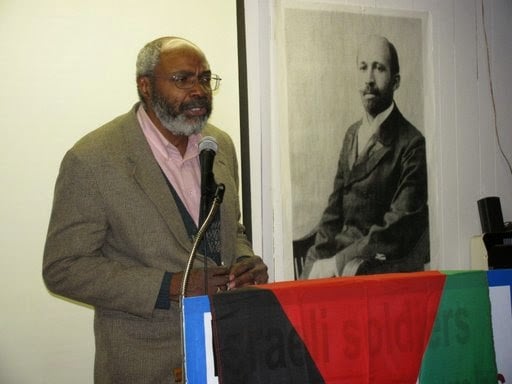
Abayomi Azikiwe with DuBois poster in background 2009
W.E.B. DuBois, who through his then companion and colleague, Shirley Graham, became more involved in the anti-imperialist and international peace movements. Graham, who was a renowned playwright, biographer and activists who worked with both the NAACP and the Communist Party, was the daughter of a Methodist minister who had known DuBois from the time she was a child. DuBois was indicted in 1950 for advocating a foreign ideology and failing to register as an agent of another state. His defense campaign was led by Shirley Graham who later became his wife.
Although DuBois was not convicted of these charges, he and Shirley Graham DuBois’ passports were seized and they came under intense scrutiny by the federal government. Both the Council on African Affairs and the Civil Rights Congress were declared subversive and forced out of existence. Leading activists within the Left and the anti-imperialist movements were forced out of their professions, sent to prison or driven into exile. It would be eight years before the DuBois’ and others like Paul Robeson would be allowed to travel outside the United States.
When the DuBois’ passports were restored, they traveled to both the Soviet Union and China. The DuBois’ were greeted by Mao Tse-tung in early 1959 during their visit to the People’s Republic of China. At a 91st birthday commemoration in China DuBois made a speech at a state-sponsored banquet which was broadcast through the national media.
On March 5, 1959, DuBois was quoted as saying that “Come to China, Africa, and look around. You know America and France and Britain to your sorrow. Now know the Soviet Union and its allied nations, but particularly know China. China is flesh of your flesh and blood of your blood. China is colored, and knows to what the colored skin in this modern world subjects its owner. In my own country for nearly a century I have been nothing but a nigger.” (“Du Bois, 91, Lauds China,” New York Times, March 5, 1959)
The Chinese Revolution and the African-American National Question, 1959-1976
After the visit of W.E.B. DuBois and Shirley Graham DuBois in 1959, other indications of the significance attributed by the Chinese revolution to the struggles waged among African-Americans, Africans and the peoples of the developing world remained evident. Inside the United States, despite the suppression of the CRC and the CAA and other groups, the civil rights movement gained greater momentum after 1955.
In 1955, the Montgomery Bus Boycott would last for a year where African-Americans led a movement of thousands that would gain national and international recognition. In 1957 the Southern Christian Leadership Conference (SCLC) was founded by Dr. Martin Luther King, Jr. and his colleagues. This same year the first civil rights bill was passed since Reconstruction during the late 1860s and 1870s.
The state-sanctioned terror of the immediate postwar period was being broken through the civil rights movement that was led by the African-American people. Yet the U.S. government still refused to take measures that would guarantee the civil and human rights of the African-American people.
In 1960, the students took the lead in the civil rights movement with the emergence of the sit-ins that involved thousands of college and high school students largely in the segregated South. The Student Nonviolent Coordinating Committee (SNCC) was formed in April 1960 and continued to work in the South over the next seven years to win concessions related to access to public accommodations, jobs and voter registration.
This intensification of the civil rights struggles in the South was paralleled on the African continent and in other geo-political regions of the world. In Cuba, the July 26th Movement would seize power in early 1959 and claim the genuine political and economic independence of Cuba leading to the development of a socialist state in the Caribbean just 90 miles off the coast of the United States.
In a document entitled “The peoples of Asia, Africa and Latin America should unite and drive American imperialism back to where it came from” states that on May 7 (1960), in Chengchow, Comrade Mao Tse-tung received public personages, workers for peace, trade union, youth and student delegations, and delegates from twelve African countries and regions who were then visiting China….”
The document continues by saying that “Comrade Mao Tse-tung, on behalf of the 650 million Chinese people, expressed full sympathy and support for the heroic struggle of the African people against imperialism and colonialism. He also expressed sympathy and support for the patriotic and just struggles of the South Korean people and the Turkish people against U.S. imperialism and its running dogs.”
Then in the same publication, it notes that on the following day, May 8, Mao Tse-tung “received friends from eight Latin American countries then visiting China…. Comrade Mao Tse-tung thanked them for their friendship for the Chinese people. The Chinese people, he said, just like the Latin American people, had long suffered from imperialist oppression and exploitation. Relying on their own unity and support from the peoples of various countries, the Chinese people had carried on hard and prolonged struggles and ultimately had overthrown the rule of imperialism, feudalism, and bureaucrat-capitalism in China. The Cuban people, the people of Latin America, and the people of the whole world, he said, are all friends of the Chinese people; and imperialism and its running dogs ia our common enemy, but they are a tiny minority.” (Mao Tse-tung, 1960)
Between 1960 and 1963, the African-American struggle for civil rights and self-determination gained momentum and strength. In 1963, thousands of African-Americans engaged in mass actions throughout the north and southern regions of the United States. During the spring and summer of that year, the violent repression of the local and state governments against these demonstrations was not effectively opposed by the federal government. In Detroit in June 1963 and later in August in Washington, hundreds of thousands would march in support of the passage of a comprehensive civil rights bill and the destruction of all vestiges of racial discrimination.
Other forces within the African-American nation would emerge alongside the SCLC and SNCC. The Nation of Islam, and its militant spokesperson Malcolm X would call for a greater emphasis on self-defense and self-determination of the African people in the U.S. Robert F. Williams of the NAACP in Monroe, North Carolina emphasized the formation of rifle clubs to defend the African-American people from racist terror. Williams was driven into exile in 1961 by the racists in North Carolina and the FBI. He would first land in Cuba and later visit and eventually take up residence in the People’s Republic of China along with his wife Mabel and their children.
At a gathering of visitors from Africa on August 8, 1963, Chairman Mao Tse-tung stated that “An American Negro leader now taking refuge in Cuba, Mr. Robert Williams, the former President of the Monroe, North Carolina Chapter of the National Association for the Advancement of Colored People, has twice asked me for a statement in support of the American Negroes’ struggle against racial discrimination. On behalf of the Chinese people, I wish to take this opportunity to express our resolute support for the American Negroes in their struggle against racial discrimination and for freedom and equal rights.” (Statement Calling on the People of the World to Unite to Oppose Racial Discrimination by U.S. Imperialism and Support for American Negroes in Their Struggle Against Racial Discrimination)
On the character of the burgeoning civil rights struggle in the U.S. during 1963, this same statement continues by pointing out that “The speedy development of the struggle of the American Negroes is a manifestation of the sharpening class struggle and national struggle within the United States; it has been causing increasing anxiety to U.S. ruling circles.” (Mao’s statement, August 8, 1963, p.4)
In an appeal to the international community, the statement goes on to stress that “I call on the workers, peasants, revolutionary intellectuals, enlightened elements of the bourgeoisie and other enlightened persons of all colors in the world, whether white, black, yellow or brown, to unite to oppose the racial discrimination practiced by U.S. imperialism and support the American Negroes in their struggle against racial discrimination. (Mao Statement, p.5)
According to Mao, “In the final analysis, a national struggle is a question of class struggle. In the United States, it is only the reactionary ruling circles among the whites who oppress the Negro people. They can in no way represent the workers, farmers, revolutionary intellectuals and other enlightened persons who comprise the overwhelming majority of the white people. At present, it is the handful of imperialists headed by the United States, and their supporters, the reactionaries in different countries, who are inflicting oppression, aggression and intimidation on the overwhelming majority of the nations and peoples of the world.”
This statement goes on to say that “We are in the majority and they are in the minority. At most, they make up less than 10 percent of the 3,000 million population of the world. I am firmly convinced that, with the support of more than 90 percent of the people of the world, the American Negroes will be victorious in their just struggle. The evil system of colonialism and imperialism and the trade in Negroes, and it will surely come to its end with the thorough emancipation of the black people.”
In an address delivered Liu Ning-I, Representative of the People’s Organization of China and President of All-China Federation of Trade Union said that “The struggle of the American Negroes against racial oppression and for freedom and equal rights are a component part of the revolutionary struggle of the oppressed peoples and nations the world over. This revolutionary struggle springing up in the heartland of U.S. imperialism is of very great significance to the common struggle of the people of the world against imperialism headed by U.S. imperialism, and gives a powerful support to the fighting peoples of different countries.” (Liu Ning-I statement, 1963)
Robert F. Williams, the former NAACP leader in Monroe, North Carolina and editor of the Crusader newsletter, stated in a speech on October 10, 1963, that “The same savages who rain death and destruction on the innocent women and children of Cuba, the same savages who rain death and destruction on the helpless women and children of south Viet Nam, the same savages who supply the implements of death and destruction to South Africa and Portugal, are the same who blow off the heads of little black girls in the homes and churches of Birmingham, Free World U.S.A. U.S. racism is a cancerous sore that threatens the well-being of humanity. It can only be removed and a cure effected by a surgical operation performed by the great masses of world.”
In a statement from John D. Marks, who in 1963 was a national executive committee member of the African National Congress, stated at a rally in China on August 12, 1963 that ‘The struggle of the American Negroes is directly linked up with the general struggle against imperialism headed by the United States of America and therefore the realization of their victory is only possible with the final defeat of American imperialism. Because the struggle of the Negro peoples for political, economic and social equality is a just struggle, and has the support of all the peoples of the socialist camp, the peoples of Asia, Africa and Latin America, and those progressive forces inside the capitalist countries including the United States, their victory is inevitable.”
In another statement delivered at the same August 12, 1963 rally, a delegation from the Basutoland Congress Party stressed that “The position of the people of African origin in the United States deserves the attention of all democratic freedom-and peace-loving people all over the world. The discrimination practiced against the people of African origin in America is an instrument of oppression and exploitation such as is practiced by the imperialists in Africa, Asia and Latin America against the indigenous people.”
The statement continues by saying that “The people of Basutoland support whole-heartedly the rightful struggle of the Negroes in America. We could list a thousand actions of barbarism which have been conducted against the people of African origin in America, which actions are cursed by all the peace-loving peoples of the world.”
In 1963, the U.S. President John F. Kennedy was assassinated by forces to the right of him within the government, military and the ruling class. The continuing escalation of the U.S. imperialist war against the people of Vietnam took a decisive leap during 1964-65.
Democratic successor to JFK, Lyndon B. Johnson, could not reconcile the escalation of the war against the Vietnamese people with the stated aims of alleviating poverty and racial discrimination in the United States. After 1963, the African-American struggle began to place more emphasis on self-defense, urban rebellion and the armed actions of the masses. Between 1963 and 1967, hundreds of rebellions would erupt throughout the country.
In 1965, the militant African-American leader Malcolm X was assassinated in New York City. Malcolm had broken with the Nation of Islam over his desire to become more directly involved in the national liberation struggles of the African-American people. Malcolm X made numerous statements during 1964 in support of the Chinese revolution and its support of the various efforts to win independence and justice throughout the world. When China launched its first atomic weapons test, Malcolm X hailed this achievement and said the strengthening of China would assist the liberation of oppressed peoples internationally.
During 1966 and 1967, the Black Power movement would make significant gains among the African-American people, especially the workers and youth. In 1967, over 160 rebellions swept the United States prompting the state and federal government to dispatch thousands of National Guard and Army units in urban settings like Detroit and Newark, New Jersey.
In 1966-67, the Black Panther Party for Self-Defense was formed in the Bay Area of California. The founders of the party, Huey P. Newton and Bobby Seale would sell the famous Red Book quotations from Chairman Mao as a fundraiser for the organization where they purchased their first guns utilized to patrol the streets of Oakland. The Black Panther Party would adopt the Chinese emphasis on armed struggle as the most secure method of guaranteeing liberation and socialism.
On April 4, 1968, Dr. Martin Luther King, Jr. was assassinated in Memphis, Tennessee while assisting a sanitation workers strike in that city. King was framing a new conception for the African-American struggle by linking the movement against racism and poverty with the anti-war efforts that were gaining momentum throughout the U.S.
In the aftermath of the assassination of King and subsequent rebellions in over 100 cities throughout the U.S., Chairman Mao Tse-tung issued a message on April 16, 1968 entitled “Statement by Comrade Mao Tse-tung, Chairman of the Central Committee of the The Communist Party of China, in Support of the Afro-American Struggle Against Violent Repression. The statement read in part that “The storm of Afro-American struggle taking place within the United States is a striking manifestation of the comprehensive political and economic crisis now gripping U.S. imperialism. It is dealing a tellling blow to U.S. imperialism, which is beset with difficulties at home and abroad.” (Chairman Mao, 1968)

China-Africa Cooperation poster from 1972
In 1971, leaders of the Black Panther Party would be invited to China for high-levels meetings with the Communist Party and government officials. This took place during the same period that representatives of the U.S. government made arrangements to visit the PRC. Between 1972 and the death of Mao Tse-tung, the Chinese foreign policy continued to strengthen its contact with the leadership of U.S. imperialism. After the death of Mao in 1976, the shift in Chinese foreign policy became evident. By early 1979, the PRC and the U.S. established diplomatic relations.
Over the last three decades China underwent major changes in its economic and foreign policy imperatives. In the aftermath of the Tiananmen Square incidents of 1989, the Chinese leadership under Deng Tsao-ping, revealed its strategy of large scale infusion of western capital for several decades aimed at achieving substantial economic growth.
Although it has appeared from time to time over the last thirty years that relations between U.S. imperialism and the PRC have undergone substantial changes, the American ruling class still harbors no love for China. During the Tiananmen Square incidents of 1989, the U.S. sought to support the opposition forces that threatened destabilization and civil war. China as a result of the economic changes that have taken place since the 1980s, has outstripped growth rates within the United States and other imperialist states.
In 1999, the U.S. military bombed the Chinese embassy in Belgrade, Yugoslavia during the onslaught against the Molosevic government and the attempts to break-up the last remaining European socialist state. In China, youth trashed the American embassy and relations were strained for months to come. Eventually a U.S. spy plane was forced down over China, where the aircraft was dismantled and returned to the Pentagon.
With the U.S. imperialists facing the worst economic crisis since the Great Depression, the role of China is still very significant. The PRC controls over a trillion dollars in U.S. debt through ownership of treasury bonds. China relations with various African states targeted for regime-change by U.S. imperialism has drawn the displeasure of both the Bush and Obama administrations.
China and the African Revolution
After the conclusion of World War II, the national liberation struggles in Africa gained tremendous momentum. The seizure of power by progressive forces within the military in Egypt led to the ascendancy of Gamel Abdel Nassar as the leader of government. In 1956, Egypt nationalized the Suez Canal leading to war with Britain and Israel. The independent path pursued by Egypt during this period provided great inspiration to both the peoples of the Middle-East and the African continent.
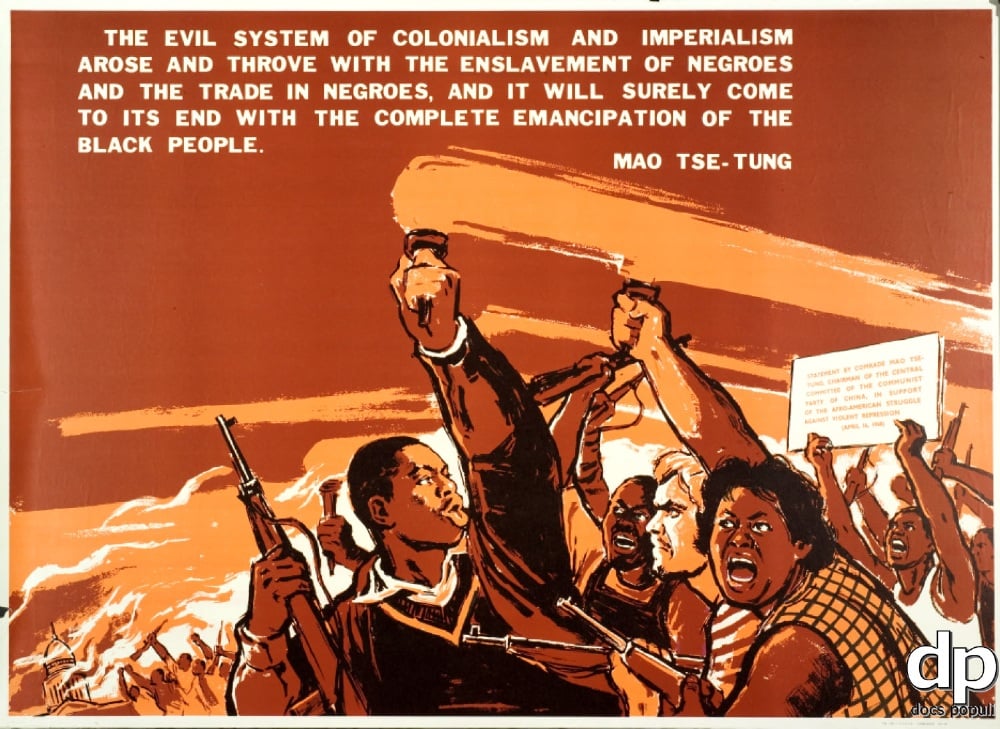
China-African American Liberation poster
In Sudan and later Ghana in 1956-57, the yoke of British colonialism was broken. In Ghana, the people under the leadership of the Convention People’s Party sought to place pan-africanism and socialism as the cornerstones of both domestic and foreign policy. Other states would gain independence during this period including the former French colony of Guinea which sought a path similar to the one set down by the PRC.
In 1960, 18 African states gained national independence from France, Britain and Belgium. During 1954-1961, the Algerian National Liberation Front waged a protracted armed and political struggle against French imperialism. Algeria gained its independence in 1962. Franz Fanon, an African born in Martinique played a significant role in the course of the revolution in Algeria. In 1963, the Organization of African Unity was established with 33 member-states.
In late 1963 and early 1964, Chou En-lai visited several African countries in an effort to enhance China-African relations. On December 14, 1963, Chou En-lai stated in Cairo that “This is my first visit to the African continent and I would like to avail myself of this opportunity to pay my tribute to all the new emerging independent African states and their peoples, and to all the struggling peoples in Africa. The Asian and African peoples have always supported each other in their struggles, and I am convinced that the Asian and African peoples united together will certainly continue to win new victories in their common cause of striving for and safeguarding national independence and defending world peace.” (Afro-Asian Solidarity Against Imperialism, 1964, pp. 3-4)
In Algeria on December 25, 1963, Chou En-lai paid tribute to the heroic armed struggle of the Algerian people that won the national liberation of this North African state that fought French imperialism for over 130 years. Chou En-lai said that “The great victory of the revolutionary struggle of the Algerian people shows that the new-born revolutionary forces, though seemingly weak at first, can ultimately defeat the outwardly strong but decadent counter-revolutionary forces. The Algerian revolutionaries have been able to overcome obstacle after obstacle and carry the national liberation struggle from victory to victory because they have correct leadership, have confidence in the strength of the people while scorning the strength of the enemy, and uphold the anti-imperialist revolutionary line while combating the capitulationist line which does not oppose imperialism but is opposed to revolution.” (Afro-Asian Solidarity Against Imperialism, pp. 66-67)
During a visit to Ghana on this same tour, Chou En-lai stated that “The national liberation movement in Africa has become an important force in the contemporary struggle of the people of the world against imperialism, and has made outstanding contributions to the cause of safeguarding world peace.”
Chou En-lai then links the struggles of the African people taken away from the continent during slavery and those that were currently fighting for national liberation in their homeland. The Chinese leader said that “The castle where we are now joyously assembled was a centre where a few centuries ago, the Western colonialists plundered and traded in Negroes. Chairman Mao Tse-tung says, ‘The evil system of colonialism and imperialism grew up with the enslavement of Negroes and the trade in Negroes, it will surely come to its end with the thorough emancipation of the black people.'” (Afro-Asian Solidarity, p. 137)
Later during Chou En-lai’s visit to the West African state of Guinea, he stressed the need for self-reliance in the independence movement. The Chinese leader stated during a speech in Guinea that “The people of the Asian and African countries deeply realize that in order to achieve independence, the people should mainly rely on their own struggle and that in order to develop the national economy and build up their own countries after independence, the people should also primarily rely on their own efforts. Self-reliance and energetic endeavors to bring about prosperity this is a line which consists in placing confidence in and depending on the masses of the people to develop the national economy and realize complete independence.” (Afro-Asian Solidarity, p. 196)
The East African state of Tanzania was heavily influenced by the People’s Republic of China. Under the leadership of the African National Union and President Julius Nyerere, the country issued the Arusha Declaration, a socialist document, in 1967. The theme of the Arusha Declaration was to place emphasis on national self-reliance, the uplifting and empowerment of the peasantry as well as the realization of socialism based on the concrete conditions existing in Tanzania.
During the mid-1970s, the Chinese built the TanZam railway lines that assisted the developments within the trade and transport industries in three two east and central African states of Tanzania and Zambia. Later the Chinese assisted the people of Mozambique in their struggle aimed at winning national independence through armed struggle.
As a result of the ideological and political struggle between the USSR and the PRC after the 20th Congress of the Communist Party of the Soviet Union in 1956 and the intensification of this struggle during 1956-1963, greater competition developed in regard to overtures and relations sought within the African continent by the two socialist states.
This ideological struggle worked against the people of Angola during the 1970s, when initially the PRC supported the reactionary forces that were opposed politically by the MPLA, the legitimate liberation movement in that southern African country that broke free of Portuguese colonialism in 1975. After recognizing this error, the PRC suspended all aid to the UNITA organization at the conclusion of 1975.
By 1983, the PRC was once again playing a significant role in assisting the national liberation struggle in South Africa, still under settler-colonialism and apartheid. In an interview with the-then African National Congress leader Oliver Tambo in regard to China’s support for the armed struggle to end apartheid in the sub-continent, Tambo spoke on a recent visit to the PRC saying that “It was the third time that the ANC has sent a delegation to the People’s Republic of China. The first time was in 1963. I was leading both. (Journal of African Marxists, No. 5, March 1984)
Tambo continued in the interview by stating that “Between 1975 and 1983 is quite a bit of time, and over that time relations have not grown. So part of the purpose of this invitation was simply to strengthen relations between the ANC and the People’s Republic of China. That’s how we saw our visit.
“We think we emerged from our discussions feeling that our relations had been deepened and we got assurances of China’s all-round support: political and material. In fact, as I have said elsewhere, we asked for support related to our armed struggle and got a promise of weaponry and generally a willingness to assist and support.”
In regard to how the Sino-Soviet dispute effected relations between the PRC and the ANC, Tambo said in the interview that “I think that in the sixties this was a factor, but in 1975 we resolved that question. The Chinese accepted the fact that we have nothing against the Soviet Union. That the Soviets were close friends of ours, and that friendship with anyone else was not conditional upon our weakening relations with the Soviet Union. They accepted that in 1975.”
China, Africa and the World Today
There has been considerable comment and reaction to the role of Chinese foreign policy in the current period. With rapid growth of the Chinese economy over the last two decades, the socialist state has become a rival of the United States, Britain, Japan and other imperialist countries. The opening of Chinese markets to western products and the mass production of consumer goods for export to the industrialized countries has created substantial growth within their national economy.
As the economic growth rates of the United States have shrunk over the last decade and the increasing problems of structural unemployment and poverty along with the widening gap between rich and poor has become more evident, there has been increasing tensions between Beijing and Washington. The U.S. industries have downsized and outsourced tens of millions of manufacturing and service industry jobs to production facilities off shore.
Workers and the oppressed in the U.S. have seen their real wages decline over the last several decades while the military-industrial complex has grown since the beginning of the 21st century carrying out wars of occupation and aggression against Yugoslavia, Afghanistan, Iraq, Pakistan, Haiti and Somalia. Surrogate wars are also being carried out against the people of Palestine, Colombia, Sudan and Zimbabwe.
Since the beginning of the Bush administration the purported threat of “international terrorism” has been utilized to justify large-scale military and security expenditures. The Pentagon budget is in excess of $700 billion annually. Current debates within the U.S. ruling circles never question the cost, size and social impact of these ever-growing military expenditures. The wars that are being waged in the current period are all directed against the former colonial, semi-colonial and modern-day neo-colonial states. All of these states are viewed as strategic to the aims and objectives of U.S. imperialism.
Iraq, which contains one of the largest known oil reserves in the world, has been the focus of attention for the U.S. ruling class for many years. Afghanistan, where the resistance to imperialism is growing every week, more and more lives and resources are being lost through the war of occupation. Both the Iraq and Afghan occupation are economic in nature although the corporate media attempts to frame the public discussions surrounding these wars as matters of national security for the people of the United States.
In Africa, China has increased its economic and political relations with numerous states. With specific reference to Sudan and Zimbabwe, two states that have been targeted by the U.S. for destabilization and regime-change, China has developed close bonds of friendship and mutual cooperation.
In Sudan, where the civil conflict in the Darfur region has been utilized as a mechanism for the interference in the internal affairs of Africa’s largest geographic nation-state, the United States and Israel has sought to utilize the fighting there to justify aggressive policies. Sudan is one of the emerging oil-producing states that have maintained for the last two decades policies both domestic and foreign that are independent of the U.S. Although the Obama administration has appointed a special envoy to Sudan, they are still working through the State Department, the Pentagon and the State of Israel to undermine the national sovereignty of this central African country.
Zimbabwe’s history over the last 120 years is one of European settler-colonialism and the struggle for national liberation. The liberation movements in Zimbabwe, which grew in strength during the 1970s and realized independence for this southern African state in 1980, were never supported by the U.S. and the former colonial power of Britain. Efforts by the ZANU-PF government under President Robert Mugabe to reclaim the historical land base of the people have been met with extreme hostility by imperialism which has imposed sanctions on this emerging nation.
The role of Chinese foreign policy has been crucial in the defense of both Sudan and Zimbabwe. Economic relations between Sudan and China have been essential in creating growth inside the country. In Zimbabwe, the economic and political assistance from China has helped to stave off a total collapse that has been engineered by British and U.S. imperialism operating in concert with domestic enemies of genuine national independence.
China has also increased its level of cooperation with the Latin American states of Venezuela and Cuba, both of which are maintaining and anti-imperialist and socialist domestic and foreign policy. Recent economic agreements between Venezuela and China in areas of oil and technology are key to the development aims of both states. At the same time economic and political relations between Cuba and China have improved since the collapse of the Soviet Union and the eastern European socialist countries two decades earlier.
The world today is facing the worst economic crisis in decades. The U.S. capitalists have over the last year attempted to prevent a total financial meltdown. The Bush and Obama administrations instituted so-called economic stimulus programs that have had virtually no impact on the economic well-being of working people and the oppressed inside the U.S. Yet, according to recent reports, the stimulus program initiated by China, which reinvested approximately 13% of its gross domestic product back into its economy has had noticeable impact.
As the economic crisis worsens in the United States and throughout the world, there will be greater tensions in both the international arena and within the capitalist states as well. There is no future for workers and the oppressed under capitalism and imperialism. Only socialism and socialist economic planning can provide a way out of the economic crisis for the majority of people throughout the world. Consequently, the struggle for socialism is the only viable solution to the world economic crisis in the modern period.





 Giants: The Global Power Elite
Giants: The Global Power Elite


